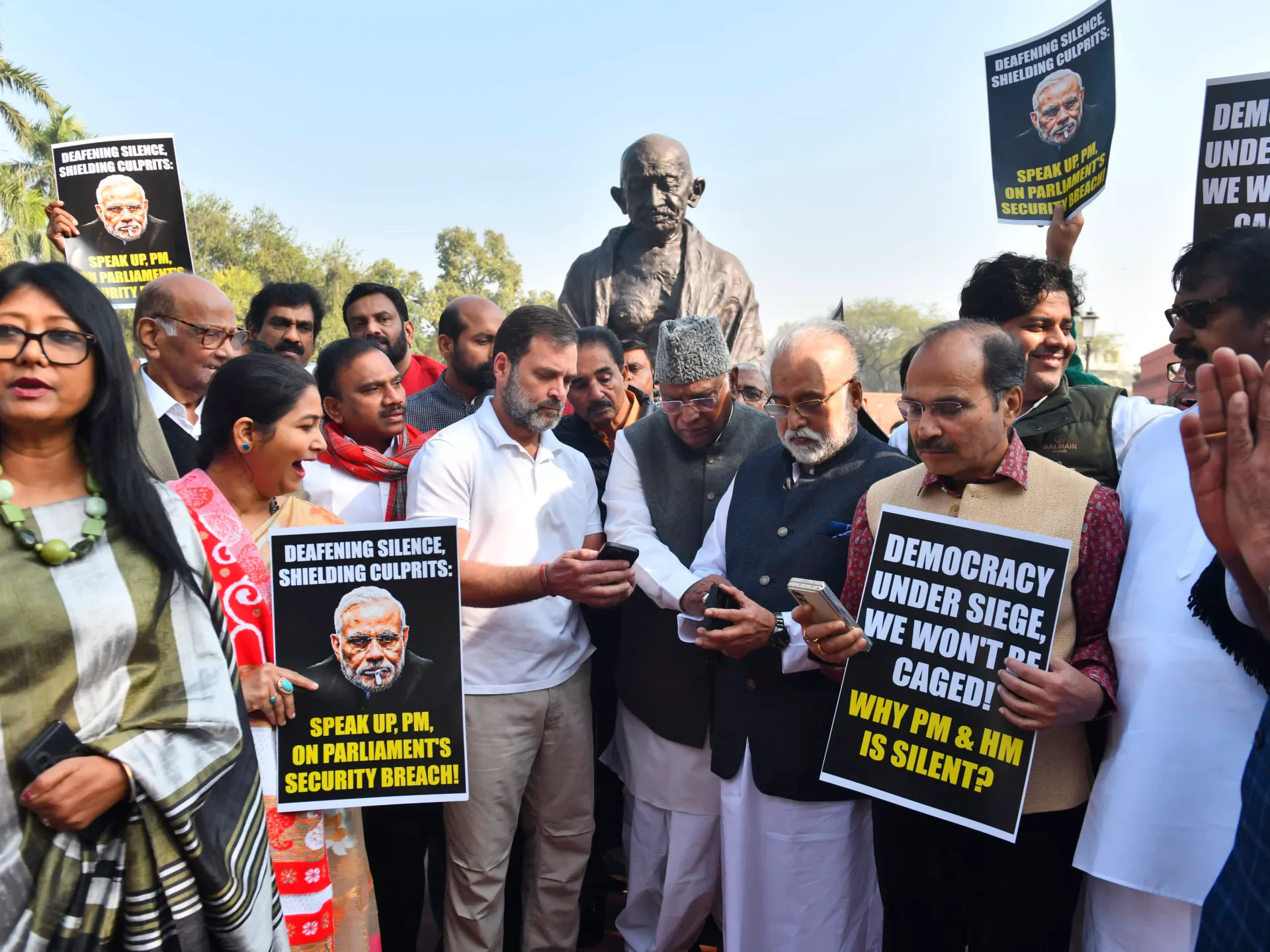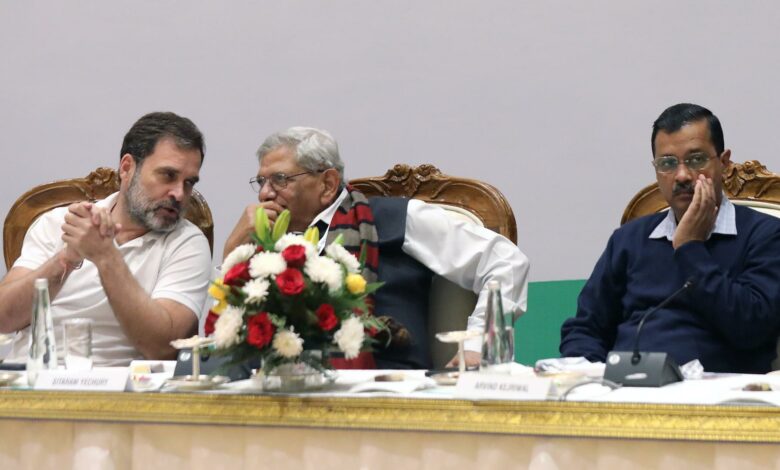Suspension Of 140+ Opposition MPs In India Sparks Parliamentary Crisis
In a historic move, the suspension of 140+ opposition MPs in India sparks parliamentary crisis, marking the largest number of bulk suspensions in the country's parliamentary history.
Author:Darren McphersonReviewer:Camilo WoodDec 20, 202342K Shares765.1K Views

In a historic move, the suspension of 140+ opposition MPs in India sparks parliamentary crisis, marking the largest number of bulk suspensions in the country's parliamentary history.
The ruling Bharatiya Janata Party (BJP) faced accusations of undermining democracy and creating "anarchy" after 141 MPs from 11 opposition parties were suspended for the remainder of the winter session. The suspension, the highest in a single day, has intensified the ongoing political turmoil.
Unprecedented Mass Suspension
This mass suspension, unprecedented in Indian parliamentary history, has sparked a fierce political showdown between the BJP government and the united opposition.
The move comes as a response to the opposition's protest against a recent security breach at the parliamentary premises, where six intruders disrupted proceedings, triggering chaos.
Critics, including Karti Chidambaram of the National Congress Party, have characterized the suspension as a direct attack on democracy.
Opposition leaders argue that the government's intention is to "scare" opposition parties, and the situation has led to concerns about the future of parliamentary democracy in India.
Security Breach Triggers Political Turmoil
The security breach on December 13, during which intruders released colored, non-toxic gas in the lower house of parliament, has become a focal point of contention.
The opposition MPs have demanded Prime Minister Narendra Modi and Home Minister Amit Shah address parliament on the incident, but the BJP speaker has refused, stating that it falls outside the government's purview.
While the opposition politicians seek accountability and a parliamentary debate on the security breach, the government has accused them of disrupting proceedings with protests that included chanting and displaying placards, some featuring Prime Minister Modi's face. The BJP argues that such actions violate parliamentary rules.
BJP Accused Of Undermining Parliamentary Democracy
The mass suspension has intensified accusations against the Modi government, with critics alleging a systematic undermining of parliamentary democracy since the BJP came to power in 2014.
The government's strong majority in parliament has been used to target opposition parties and MPs, with some facing harassment and criminal investigations.
The opposition coalition, known as INDIA (Indian National Developmental Inclusive Alliance), which comprises almost two-thirds of the suspended MPs, convened in Delhi to strategize for the upcoming elections.
Shashi Tharoor, a Congress party leader among those suspended, lamented the situation.
“„Unfortunately, we have to start writing obituaries for parliamentary democracy in India.- Shashi Tharoor, a Congress party leader
The Modi government's actions have drawn international attention, raising concerns about the health of democracy in the world's largest democracy. As the political impasse continues, the future trajectory of India's parliamentary system remains uncertain.
Final Words
The suspension of more than 140 Indian opposition politicians has plunged the country's parliamentary system into turmoil. The ruling Bharatiya Janata Party's mass suspension of MPs, the largest in history, follows protests over a recent security breach.
Opposition leaders accuse the BJP of attacking democracy, while the government contends that the suspension is a response to disruptions during protests.
The ongoing political showdown raises concerns about the state of parliamentary democracy in India, with critics asserting a systematic undermining of democratic norms by the Modi government. The fallout from this episode adds to existing tensions as India navigates its political landscape.

Darren Mcpherson
Author
Darren Mcpherson brings over 9 years of experience in politics, business, investing, and banking to his writing. He holds degrees in Economics from Harvard University and Political Science from Stanford University, with certifications in Financial Management.
Renowned for his insightful analyses and strategic awareness, Darren has contributed to reputable publications and served in advisory roles for influential entities.
Outside the boardroom, Darren enjoys playing chess, collecting rare books, attending technology conferences, and mentoring young professionals.
His dedication to excellence and understanding of global finance and governance make him a trusted and authoritative voice in his field.

Camilo Wood
Reviewer
Camilo Wood has over two decades of experience as a writer and journalist, specializing in finance and economics. With a degree in Economics and a background in financial research and analysis, Camilo brings a wealth of knowledge and expertise to his writing.
Throughout his career, Camilo has contributed to numerous publications, covering a wide range of topics such as global economic trends, investment strategies, and market analysis. His articles are recognized for their insightful analysis and clear explanations, making complex financial concepts accessible to readers.
Camilo's experience includes working in roles related to financial reporting, analysis, and commentary, allowing him to provide readers with accurate and trustworthy information. His dedication to journalistic integrity and commitment to delivering high-quality content make him a trusted voice in the fields of finance and journalism.
Latest Articles
Popular Articles
